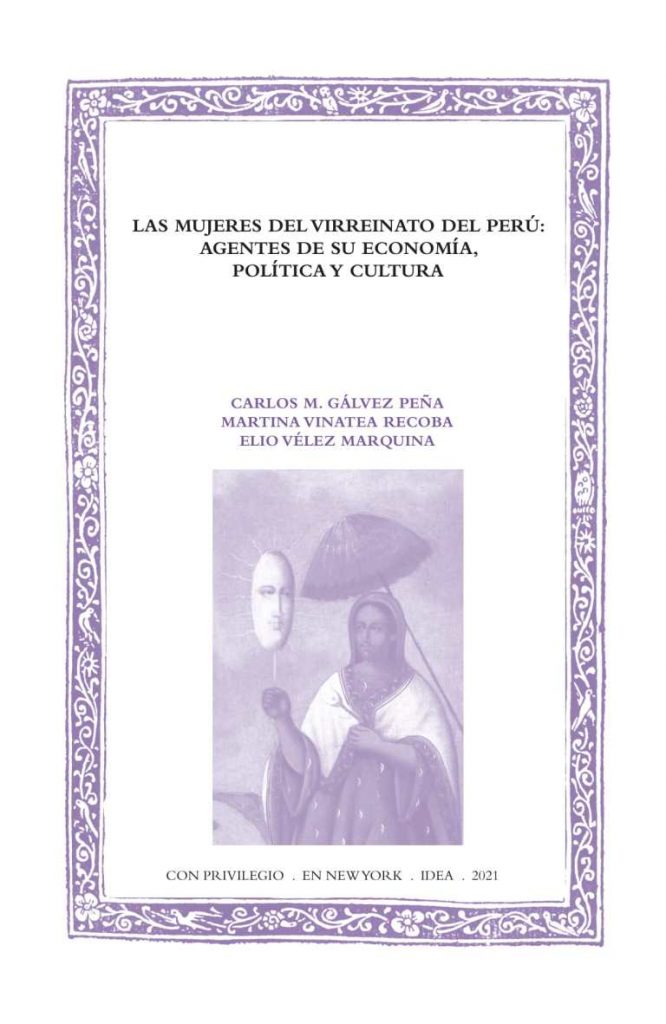
Libraries
Libraries
Las mujeres del Virreinato del Perú: agentes de su economía, política y cultura
The American continent, during the modern era, was a woman. Letrados of the 16th and 17th centuries imagined it as an untamed Amazon surrounded by wild fauna. And, above all, anthropophagous. She was the antithesis of the Christian city, where idolatry reigned. It was then that the viceroyalties established a new humanity, where the woman was more than the soldier’s companion. The wombs of American women gestated the life of the lineages which, since the 17th century, have renewed the pact with which America is linked to the rest of the world. This volume reviews the symbolic categories with which the female body was thought of and, above all, provides two biographical studies that trace the coordinates of the sphere of action of women who, from apparent anonymity, exerted their influence on literate culture and the political sphere.
Carlos Gálvez Peña holds a PhD in Latin American History and Early Modern History. He is Associate Professor of History in the Department of Humanities at the Pontificia Universidad Católica del Perú and Associate Professor in the Department of Humanities at the Universidad del Pacífico (Lima, Peru). His most recent work deals with the problem of political representation and historical sources in the Peruvian viceroyalty during the seventeenth century.
Martina Vinatea Recoba holds a PhD in Hispanic Philology and a PhD in History. She is Senior Lecturer at the Universidad del Pacífico (Lima, Peru) and Co-Director of the Centro de Estudios Indianos (CEI) / Proyecto Estudios Indianos (PEI) of the University of Navarra and the Universidad del Pacífico. Her recent work has focused on Hispanic and viceregal Peruvian women’s convent poetry and on the works of the poets of the «Academia Antártica».
Elio Vélez Marquina holds a Master’s degree in Hispanic American Literature and is a lecturer in the Academic Department of Humanities at the Universidad del Pacífico (Lima, Peru). He is also coordinator of the Proyecto Estudios Indianos (PEI) at the University of Navarra and the Universidad del Pacífico and of the Biblioteca Indiana of the Publishing House Iberoamericana-Vervuert. His recent work explores the complex relationships between iconography and the creation of a creole discourse during the seventeenth century.
Reviews
Memoria y civilización, Vol. 24 (2021)

